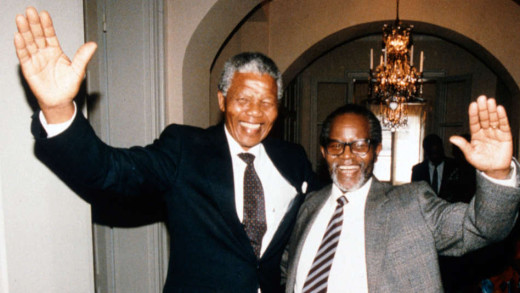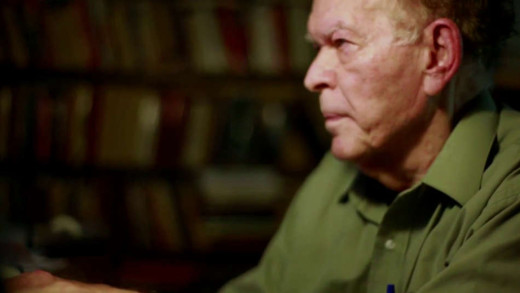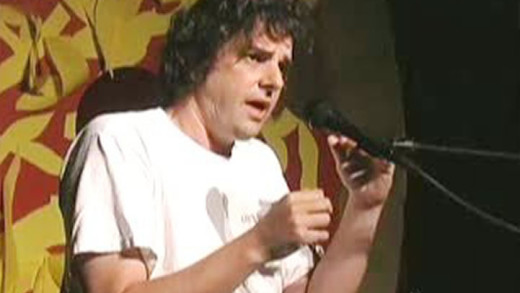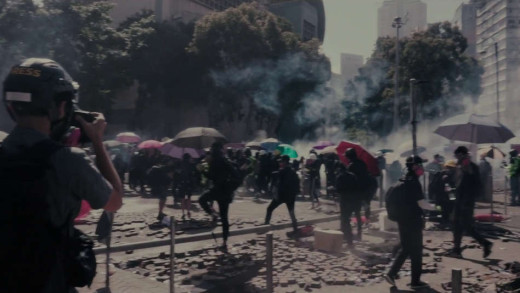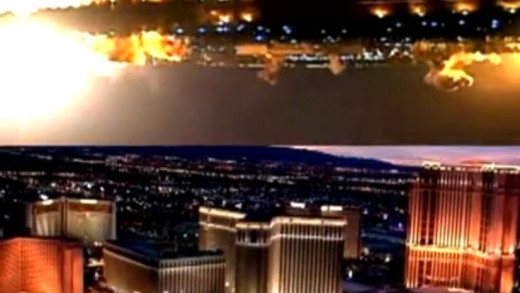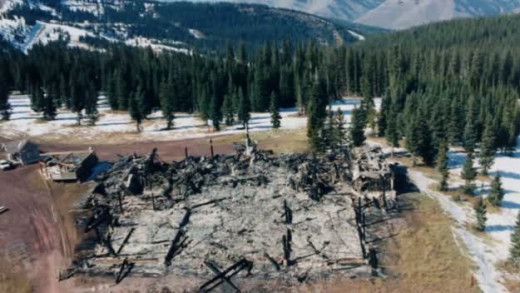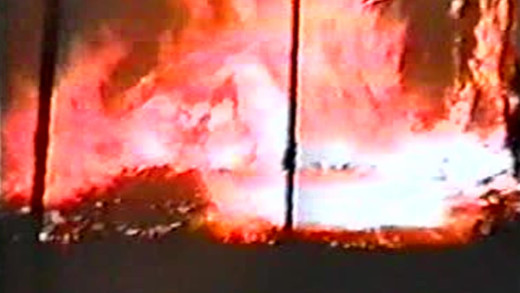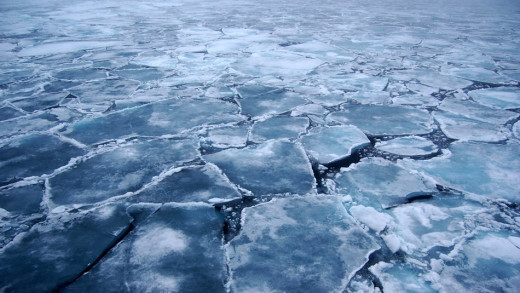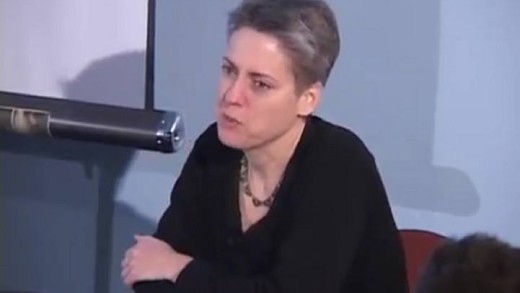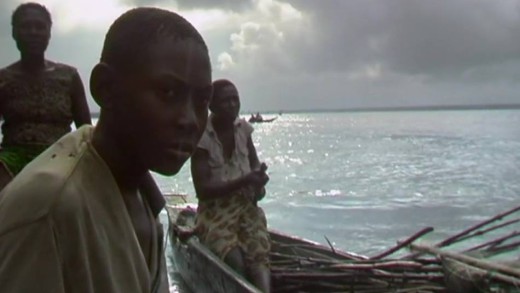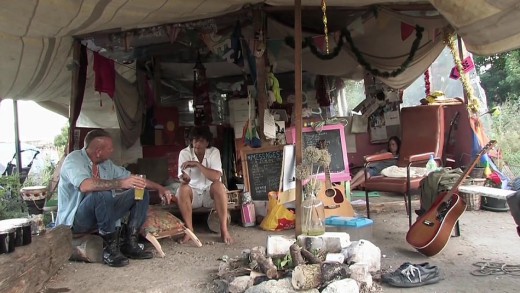How can we make political change if peaceful demonstration is not effective and violence only brings more violence? War/Peace posits this question by reintroducing two surviving figures from the Weather Underground movement of the late 1960s, Bernardine Dohrn and Bill Ayers. Coming from the hippy counterculture, the Weather Underground was a radical militant organisation, with revolutionary positions characterised by the Black Power and civil rights movements, as well as opposition to the Vietnam War. In 1970, the group issued a "Declaration of a State of War" against the United States government, with the goal to overthrow the government and end United States' imperialism, culminating in a bombing campaign targeting government buildings along with several banks. War/Peace rewinds to the past to draw out the complexity of these political struggles, and what went wrong, while drawing parallels to the struggles of today, where a lot has changed, but a lot has also remained the same.
Have You Heard From Johannesburg? is series chronicling a history of the global anti-apartheid movement that opposed South Africa's entrenched apartheid regime. The movement encompassed many methods, including mass action, underground organising, armed struggle, and international mobilisation. This series focuses on the last category: the movement to mobilise worldwide citizen action to isolate the apartheid regime. Inspired by the courage and suffering of South Africa's people as they fought back against the violence and oppression of racism, foreign solidarity groups, in cooperation with exiled South Africans, took up the anti-apartheid cause. Working against the odds, in a climate of apathy or even support for the governments of Verwoerd, Vorster and Botha, campaigners challenged their governments and powerful corporations in the West to face up to the immorality of their collaboration with apartheid, revealing that the battle was more than just political. It was economic, cultural, moral, and spiritual. The combined stories have a scope that is epic in both space and time, spanning most of the globe over half a century. Beginning with the very first session of the United Nations, and ending in 1990--when, after 27 years in prison, Nelson Mandela, the best known leader of the African National Congress, toured the world, a free man.
How to Start a Revolution is a profile of Nobel Peace Prize nominee and political theorist Gene Sharp, who is described as one of the world's foremost scholars on nonviolent revolution. The film profiles Sharp and his ideas, as well as their influence on popular uprisings around the world. There is particular focus on Sharp's key text From Dictatorship to Democracy, which has been translated by activists into more than 30 languages, and used in revolutions from Serbia and Ukraine, to Egypt and Syria. Quiet and unassuming, a softly spoken Sharp describes how his 198 methods of nonviolent action have spread from his tiny Boston office to inspire and inform uprisings across the globe.
What if you live in the most destructive culture ever to exist? What if that culture refuses to change? What do you do about it? Derrick Jensen, the author of Endgame responds to these imperative questions and details how industrial civilisation and the persistent and widespread violence it requires is ultimately unsustainable—and what to do about it. Jensen weaves together history, philosophy, environmentalism, economics, literature and psychology to produce a powerful argument that demands attention...
During the 2019–2020 Hong Kong protests, after 6 months of ongoing actions, and with protesters facing escalating stakes from police shootings and other violent repression, students began to fortify a number of the city's major universities and occupy vital roads nearby. This lead to a peak moment in the protest movement--the siege of the Hong Kong Polytechnic University. Protesters gathered at the university to defend their roadblocks, while the police shot tear gas and used water cannons to shower the protesters with water containing blue colouring and chemical irritants. 1,458 canisters of tear gas were fired at protesters, as well as 1,391 rubber bullets, 325 bean bag rounds, and 256 sponge grenades. The city's hospitals were overwhelmed by the number of protesters needing urgent medical attention. Burn with Us documents a first-hand view of the conflict, and its results, in a fly-on-the-wall style.
By examining the modern culture of industrial civilisation and the persistent widespread violence and environmental exploitation it requires, END:CIV details the resulting epidemic of poisoned landscapes and shell-shocked nations, while further delving into the history of resistance and the prospect of fighting back against such abuse. Detailed is an overview of the environmental movement analogous with the historical whitewashings of the supposedly 'pacifist' social struggles in India with Gandhi and Martin Luther King in the United States; the rise of greenwashing and the fallacy that all can be repaired by personal consumer choices. Based in part on 'Endgame,' the best-selling book by Derrick Jensen, END:CIV asks: If your homeland was invaded by aliens who cut down the trees, poisoned the water, the air, contaminated the food supply and occupied the land by force, would you fight back?
For years, the Earth Liberation Front--autonomous individuals operating in separate anonymous cells without any central leadership--carried out spectacular direct-actions against businesses that destroy the environment. Some of the targets were logging corporations, SUV dealerships, ranger stations, a slaughterhouse and a multi-million dollar ski-lodge at Vail, Colorado that was expanding into national forest. As authorities were not able to crack the case and disbanded many years later, the FBI got lucky when they were led to a former activist who agreed to co-operate with them and become an informant. If A Tree Falls provokes hard questions about environmentalism, activism, and the way 'terrorism' is defined by following the story of the activists who were turned over to the FBI, and their fate...
Self published by the press arm of the autonomous activist group called the Earth Liberation Front, Igniting The Revolution is an introductory guide to the activities of the ELF. The film goes through some examples of ELF actions and calls to resist against the forces destroying the natural world by using real direct-action tactics and economic sabotage...
Earth at Risk documents the first conference of the same name convened in 2011 by featured thinkers and activists who are willing to ask the hardest questions about the seriousness of the situation facing life on the planet today. Each speaker presents an impassioned critique of the dominant culture, together building an unassailable case that we need to deprive the rich of their ability to steal from the poor, and the powerful of their ability to destroy the planet. Each offers their ideas on what can be done to build a real resistance movement—one that can actually match the scale of the problem. To fight back and win. Literally, the whole world is at stake.
The terms 'liberal' and 'radical' have been thrown around a lot in political discourse over the past decades, largely with lost meaning. This is a significant gap in our political understandings as the worldview of liberal activists and radical activists are conceptually different--an education that most of us never had. Writer and activist Lierre Keith regrounds these differences as part of a larger understanding of how effective resistance can be nurtured and sustained.
Sweet Crude is the story of how large oil corporations such as Shell and Chevron have absolutely decimated the Niger Delta, but the people are fighting back. The film shows the human and environmental consequences of 50 years of oil extraction against an insurgency of people who, in the three years after the filmmakers met them as college students, became the young of the Movement for the Emancipation of the Niger Delta (MEND). The movement is born after series of non-violent protests, and what the corporations and colonisers don't understand is that these people will fight for their land and emancipation until the end. Sweet Crude is their story of survival and armed resistance against corrupt governments and rapacious corporate power, amongst a complicit and collusive mainstream media.
Two years before the Occupy movement sprang forth in New York, a small group of land-rights activists occupied a piece of disused land in west London to create an "alternative model of moneyless, sustainable living" which they labelled, the Eco-Village. Echoing the dynamics of hippy communes in the United States decades earlier, Grasp the Nettle follows the often bewildering and even amusing actions of this group through many moments of idyllic beauty, as they use local trees and recycled rubbish to build small homes, go dumpster diving, build a manually operated shower and compost toilet, create a local seed bank, and help distribute dumpstered sandwiches to the city's homeless. But the Eco-Village quickly becomes something other than just an idealistic experiment in political protest. It begins to attract vulnerable people who already live on the margins of society and need help: the homeless, the unemployed, alcoholics, the mentally ill. Some of them are invited to stay, but others cause a ruckus and harm the group. Tensions spark as the community grapples to deal with the increasing chaos while trying to stave off the fast-approaching prospect of eviction, through the ideologies of withdrawal, dropping out, freemanism and spirtuality. Grasp the Nettle is hence a valuable reflection of the efficacy of this type of Wandervogel-style activism, where lack of goals and support infrastructure, a diverse array of internal conflicts and horizontal hostility can be the ultimate undoing of idealistic and much-needed political resistance movements.

